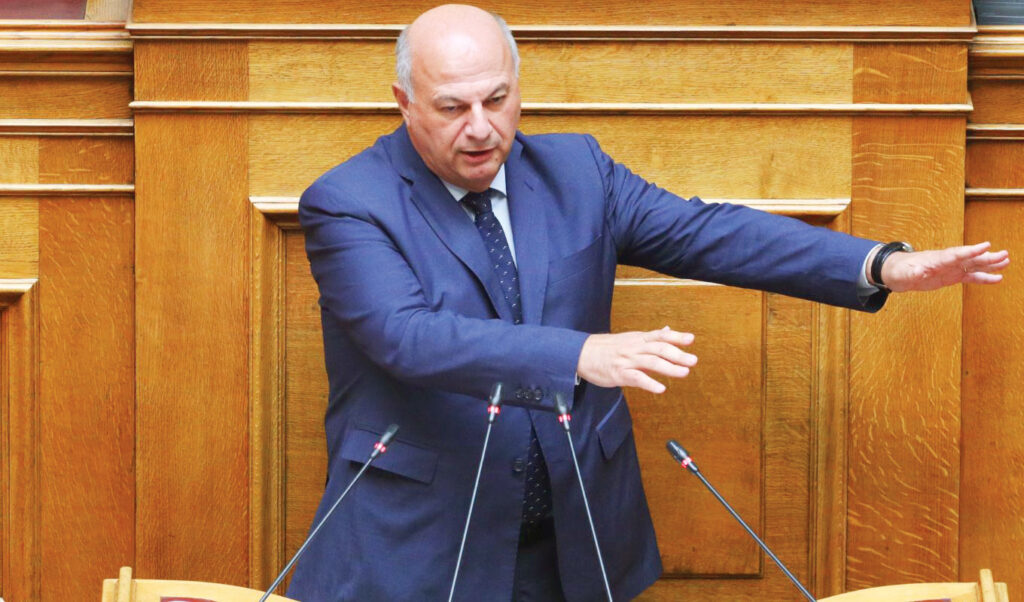Sharp criticism regarding the opposition’s stance on foot-and-mouth disease management was voiced by Agriculture and Food Minister Kostas Tsiaras, speaking at the Production and Trade Committee during discussion of the Legislative Act “Urgent regulations for primary sector support and combating the foot-and-mouth disease zoonosis.”
Minister Tsiaras, responding to opposition criticism, refuted misinterpretations regarding vaccination and criticized those who, as he stated, choose “communication solutions” instead of responsible policies. He emphasized that the government strictly implements biosecurity measures prescribed by European directives and underlined that Greece will not risk losing its “disease-free status,” as this would have serious implications for agricultural product exports.
Tsiaras: No European vaccine exists for foot-and-mouth disease
Speaking about vaccination, he clarified that “no European vaccine exists. Available vaccines are produced in third countries and used by countries like Turkey, Pakistan, or Israel, which have not managed to eradicate foot-and-mouth disease. No country has disease-free status. The disease is endemic in these countries, and they don’t have PDO products.” He continued, putting everyone before their responsibilities: “If we want to say something easy and pleasant for livestock farmers that might relieve them, I understand it would be very easy to resort to vaccination. However, we cannot ignore the future. What will happen to Greek feta, which is a global product that contributes decisively to the country’s exports? Can you imagine if feta exports were downgraded and we lost the ability we have today to export it?” He simultaneously noted that vaccination decisions rest with scientists.
“No EU country offers higher compensation than 95 euros per animal”
Regarding livestock farmer support, he emphasized that “no European Union country offers higher compensation than 95 euros per animal, while in Greece it’s 250 euros for purebred animals.” “The average is approximately 200 euros, double that of any European country. Based on compensation levels, our country provides the highest compensation because we want to support our livestock farmers,” he said, clarifying that “all compensation amounts are available” and “what hasn’t been distributed is because we’re waiting for regions to send us the statements.”
Regarding veterinarian shortages, he referenced new regulations introduced by the draft law, which provides for veterinarian hiring and deployment of military veterinarians “to ensure sufficient numbers to combat the zoonosis as quickly as possible.” Responding to opposition allegations following the letter from Health and Animal Welfare Commissioner Oliver Várhelyi, he reminded that Commissioner Hansen recently expressed a different view from Bulgaria when characterizing vaccination as a last resort measure.
Regarding livestock capital reconstruction, he clarified that “the government’s intention is to implement comprehensive support measures. Measures already exist for animal feed and livestock culling, and there will be measures in the second year for livestock capital replacement.” “We face a situation where solutions aren’t easy, but require tremendous effort and serious cooperation from everyone. Even our political system must consistently emit educational messages. If we enter any other discussion logic, the cost our homeland and livestock farming itself will pay will be much greater,” he concluded, addressing opposition parties.




